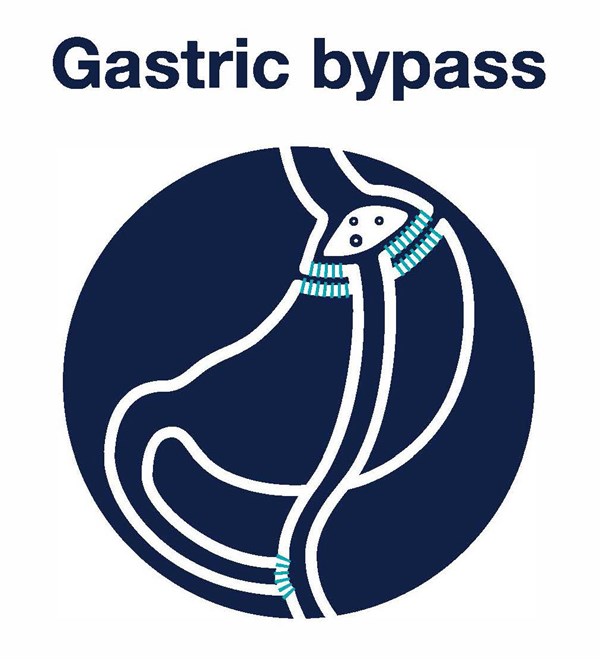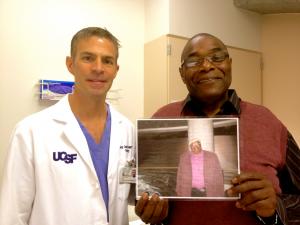Laparoscopic Gastric Bypass
The "Roux-en-Y gastric bypass" (RYGB) is considered the "gold standard" for weight-loss surgery by the American Society for Metabolic and Bariatric Surgery and the National Institutes of Health.
RYGB works by restricting food intake and by decreasing the absorption of food. Food intake is limited by a small pouch that is similar in size to the adjustable gastric band. In addition, absorption of food in the digestive tract is reduced by excluding most of the stomach, duodenum, and upper intestine from contact with food by routing food directly from the pouch into the small intestine.
The operation, usually performed laparoscopically, involves making five to six small incisions in the abdomen through which a small scope connected to a video camera and surgical tools are inserted. The surgeon staples the top portion of the stomach so it is separated from the bottom to create a small stomach pouch. This small pouch restricts food intake. A section of the small intestine called the jejunum is then attached to the small stomach pouch permitting food to bypass the lower stomach, the duodenum. This bypass reduces the amount of calories and nutrients the body absorbs, called malabsorption.

Advantages
-
Average weight loss after the Roux-en-Y procedure is generally higher if you rigorously follow instructions than with other restrictive procedures.
-
A year after surgery, weight loss averages 77 percent of excess body weight.
-
Studies show that after 10 to 14 years, 50 percent to 60 percent of excess body weight loss is maintained by some patients.
-
A study of 500 patients, conducted in 2000, showed that 96 percent of certain health conditions -- including back pain, sleep apnea, high blood pressure, diabetes and depression -- were improved or resolved.
Disadvantages
-
Because the duodenum is bypassed, poor absorption of iron and calcium can result in the lowering of total body iron, which may result in iron deficiency anemia. Metabolic bone disease has also occurred in some patients.These can be managed through proper diet and vitamin supplements.
-
Chronic anemia due to Vitamin B12 deficiency may occur. This problem usually can be managed with Vitamin B12 pills or injections.
-
A condition known as "dumping syndrome" can occur as the result of rapid emptying of stomach contents into the small intestine. This is sometimes triggered when too much sugar or large amounts of food are consumed.
-
In some cases, the procedure's effectiveness may lessen if the stomach pouch is stretched or if it is initially left larger than 15 to 30 cubic centimeters.
-
The bypassed portion of the stomach, duodenum and segments of the small intestine cannot be easily visualized using X-ray or endoscopy if problems such as ulcers, bleeding or malignancy occur.








